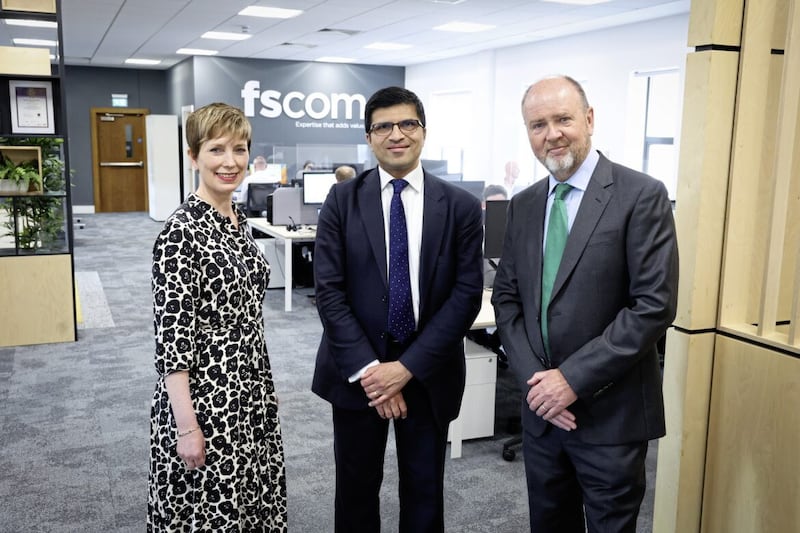POLITICAL stability has long been cited as one of the primary elements of consideration for foreign direct investors. Well known for our level of skills, low cost of doing business and position as a global competitor in emerging technologies, there is no doubt Northern Ireland is being looked at by such investors.
And this is certainly the case within fintech. Multiple global technology companies have chosen to locate here as the sector developed in recent years to employ over 7,000 individuals and bring in £392 million annually to the economy.
With a three-year strategy now in place, the industry has entered a new phase that is as much about encouraging indigenous growth among start-ups as it is about attracting the further £25m inward investment that is projected for the next three years.
This is a promising new chapter that comes in line with a fresh new political landscape at Stormont. Whatever the next political development, a new Assembly with a Programme for Government that commits to supporting fintech will be vital.
Through engagement across the ecosystem, we know the areas of work required to keep Northern Ireland competitive. At the inaugural NI FinTech Symposium in March, the start-ups, established fintechs, financial services companies and education providers made it clear they are ready for growth. So how can the Assembly and Executive support?
Skills and talent is an urgent area of concern in many cases. Northern Ireland has a strong pipeline of new talent, yet secondary cycling and scaling needs improvement and we continue to lose skilled professionals to other locations.
Reform of careers education is required, therefore, not only to direct young people towards the highly paid, rewarding careers we know exist, but to rewrite the damaging perception of risk that exists locally. A culture of entrepreneurship and encouragement to follow lesser-known career paths into areas of emerging technology is one that should be facilitated.
From there, progressing our current early-stage funding mechanisms on towards Series A and above is vital. SMEs currently venture outside of Northern Ireland to access this and one of our biggest barriers to growth is a lack of scaling support for young fintechs. The appetite is there among founders to source their funding locally, so we must find a way to take investors in that direction.
Lastly, strategic partnerships between start-ups, FDIs and regional banks will create greater opportunities more broadly. These three elements already exist in Northern Ireland, yet with little links between them, SMEs are left to look elsewhere for a strategic collaboration for growth. Aligning these key players and continuing our engagement across government, industry and education will coordinate the sector and provide a direct route for scaling up.
While we know what needs to be done, none of this is possible without support on a political level. Thousands more jobs can be created in fintech in the coming years as the sector builds momentum and the healthy start-up environment continues.
We have the environment to attract more investment in; what we need now is the essential political stability and collaboration between business and government to level up fintech and boost the economy.
:: Andrew Jenkins is chair of the FinTech NI Association and HMT fintech envoy for Northern Ireland









